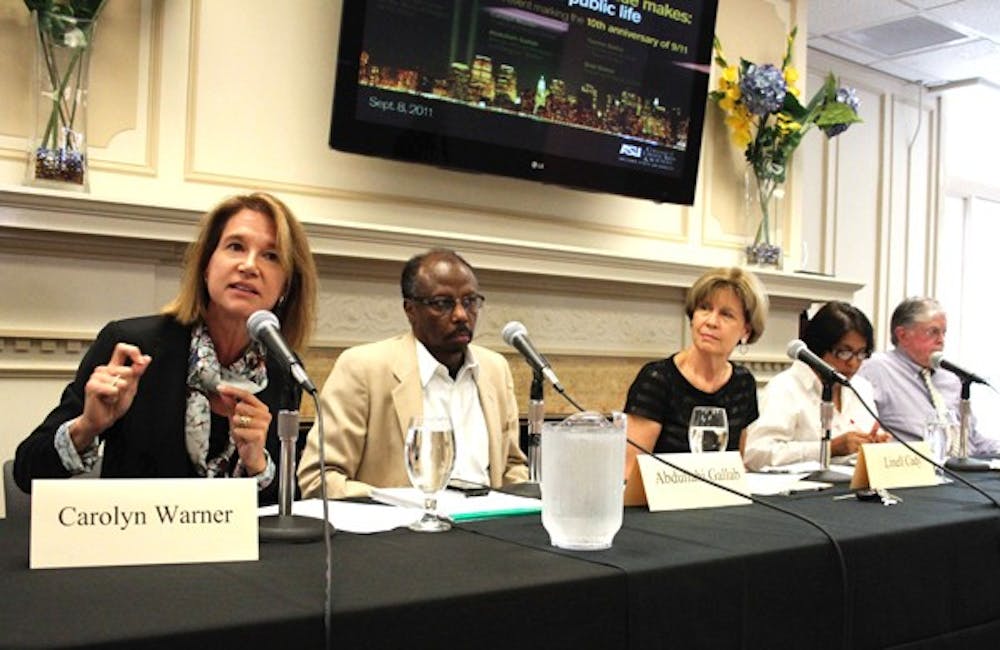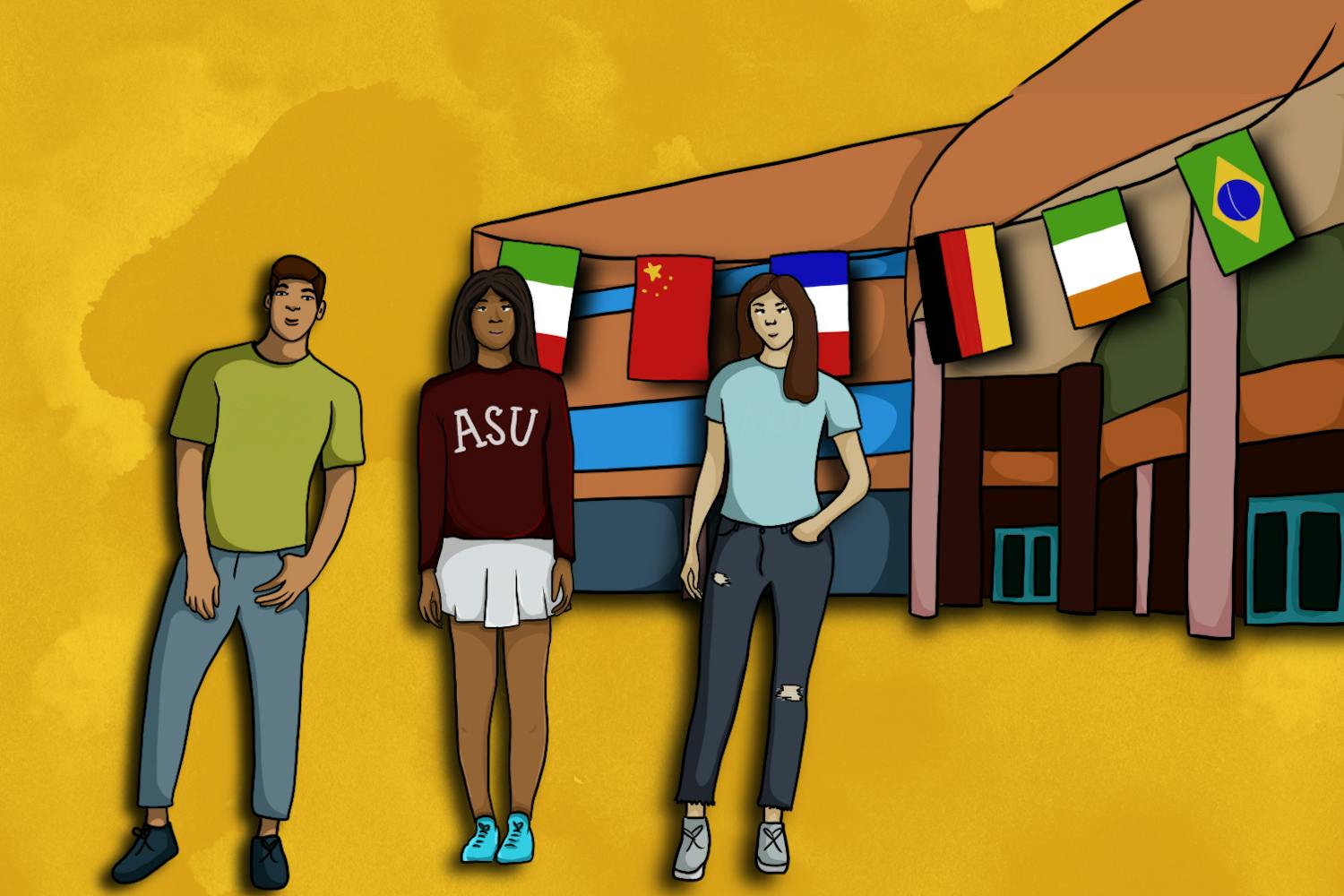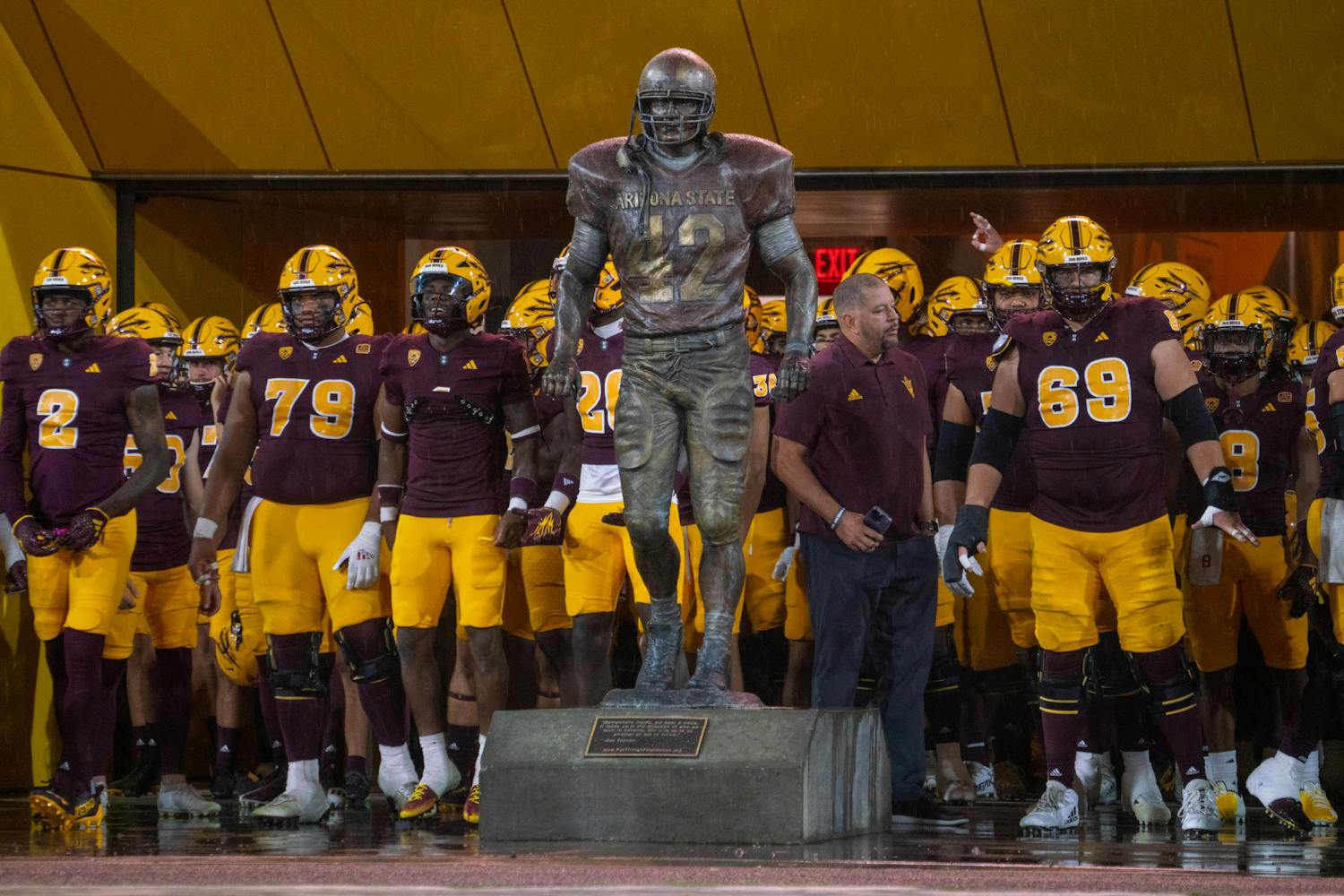As a way to commemorate the anniversary of the terrorist attacks, ASU’s Center for the Study of Conflict and Religion hosted a panel discussion on Thursday to analyze the aftermath of 9/11 and its impact on religion and politics.
The center was created in part because of questions that arose in the aftermath of Sept. 11.
Center director Linell Cady said ASU President Michael Crow was very instrumental in launching the center in 2003.
“He realized the issues that we were facing in the areas of religion, politics and global conflict and recognized that there were a lot of resources at ASU that could harness and engage these kinds of issues,” Cady said.
In a conversation led by Cady, five ASU professors discussed topics such as how people viewed Islam after 9/11 and the military response to the terrorist attacks.
Panelist Abdullahi Gallab, an African and African American studies and religious studies professor, focused on how hard it was for some Americans to separate the small pool of radical Muslims from the Islamic community.
Gallab said American attitude toward the Islamic faith is shaped by “fast religion.”
He compared “fast religion” to fast food — something that could be very damaging to a person in the future because people are only receiving very little information of Islam.
“Franklin Graham (Billy Graham’s son) and others will try to give you some nuggets of knowledge about this and that, some complicated issues,” Gallab said. “They try to oversimplify them but abuse that knowledge by giving some kind of certain ideas which can be very damaging.”
Gallab said this is more common within the older generation than the younger generation.
“The students get more of an opportunity to study religion in more depth,” Gallab said.
Communications senior Chris Krosky, who also minors in global studies, is one of these students.
“I think for a lot of people not just myself, 9/11 sparked a curiosity of how religion and politics played a role together,” Krosky said.
Like Krosky, communications senior Alexandra Cannell said she did not understand Islam or terrorism before Sept. 11.
Cannell said she feels Sept. 11 is part of what made our generation more globally aware of conflicts in the Middle East.
“This is a reality — that we need to understand different cultures, different religions in order to live peacefully,” Cannell said.
As for students like anthropology sophomore Sean Ebert, it was difficult to separate extremist groups in the Middle East from non-extremists.
“There is so much bias in the community about people in the Middle East,” Ebert said.
Ebert said his father has that bias as well and knew that he had to separate himself from his father’s opinions.
Because of how al-Qaida was portrayed by the media, it was at first hard for some students like psychology junior Chelsea Jensen to separate radical Muslims from other Muslims.
She said it was through school and her own research that she learned the difference.
Another topic that was covered during the lecture was the military response to terrorism with the wars in Afghanistan and Iraq.
Professor Sheldon Simon of the School of Politics and Global Studies explained that the wars led to a large number of al-Qaida recruits because of strategies used in the early stages of the wars.
Simon noted the numbers of al-Qaida grew because of the past administration’s war strategies, which included the military playing a larger role in overthrowing the Taliban instead of the CIA taking a lead role with paramilitary activities.
Simon also noted that among college-aged students there had been a very big response to Sept. 11 with people joining the armed forces.
“There was a huge recruitment after 9/11 based on a patriotic reaction,” Simon said.
Simon used the example of ASU alumnus Pat Tillman who was killed in Afghanistan.
“Overtime American support has declined significantly,” Simon said.
Even though support has declined, Simon said because of the current condition in the economy the number of people enlisting in the armed forces are doing very well in recruitment.
Architecture freshmen Matthew Higgs was in the second grade when the United States went to war.
He said he learned what was going on from his parents.
“I didn’t really know exactly why we were going to war,” Higgs said. “As far as I could remember I didn’t really support it because no one likes going to war.”
Higgs said he believes that it was necessary 10 years ago to go to war but doesn’t believe it is necessary now.
“We made our point. We attacked,” Higgs said. “We’ve been attacking for 10 years now. I mean we found Osama. I think we’ve made our point.”
Like Higgs, Jensen agrees that it is not necessary to still be at war.
“I don’t see why we’re still over there. Our people are still dying so get them out of there,” Jensen said.
Reach the reporter at shurst2@asu.edu





